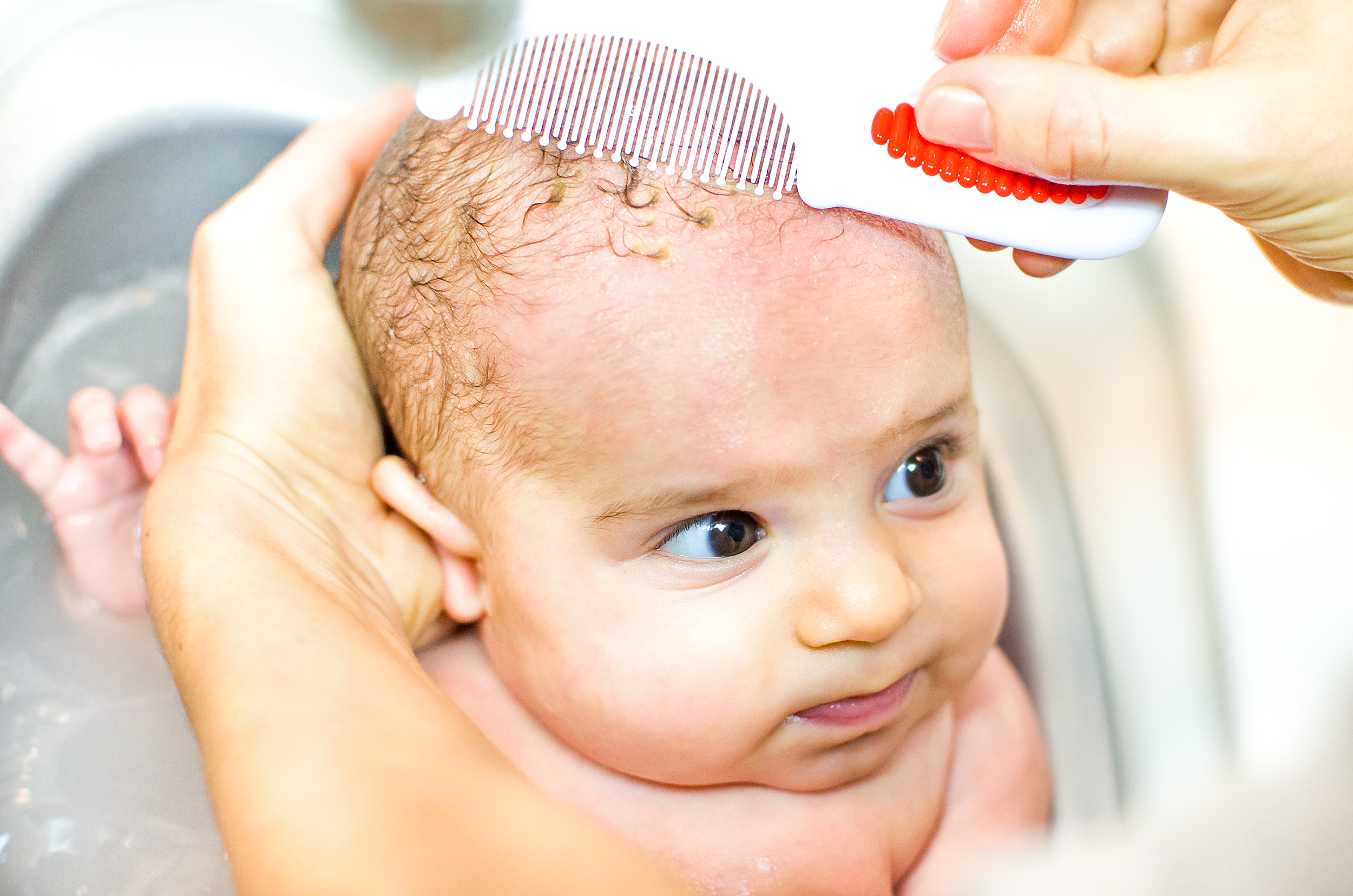-
Traveling with a Babies and Young Children

New parents traveling with toddler.
Can you travel with a baby?
Before you had a baby, travel was easy! You could pack up and go any time you had a whim and some time off, with very little hassle. Now that you have a new little one, though, the idea of packing up all the baby gear and heading off on a trip feels daunting. Can you even travel with a baby? How old does a baby need to be before it’s safe to travel? You probably have a million questions, so we’ve got some tips to help make traveling with a baby easier.
When can you go?
Before you make plans to jet off to Grandma’s with your newborn, slow down and talk to your pediatrician. Little ones are still developing their immune systems, so it’s important to get guidance from a healthcare professional before planning a trip. When you do travel with your baby, make sure you wash your hands frequently, use hand sanitizer, and avoid visibly ill travelers, to help keep your little one safe and healthy.
Planning Ahead
In addition to clearing the trip with your healthcare provider, make sure your child’s immunizations are up to date and that you pack all medication and important documents you will need on the trip. Whether your child is an infant, and older baby, or toddler, it’s better to have more than you need than to forget something. While you’re planning your trip, research your accommodations and amenities, making sure you will have everything you need for a successful stay with your little one. Be prepared for travel-related maladies like colds, sore throats, diarrhea, and car sickness, as well as things like mosquito bites and bedbugs. Take preventive measures to avoid these issues, and have remedies on hand just in case. Perhaps most importantly when planning a trip with a child, allow plenty of extra time for packing the car, getting to your destination or to the airport, going through security, checking into your hotel, or eating at a restaurant. When you have plenty of time and you’re well-prepared, the trip will go more smoothly.
What to Pack
Really, when packing to travel with a baby or small child, more is more. Make sure you bring everything your baby will need, from a traveling crib to a stroller to bottles, bibs, diapers, wipes, pacifiers, and plenty of clothes. Bring favorite toys and blankets, pack books, craft supplies and other activities, and bring bedding from home to help your child feel more at ease. Check the weather for your destination and pack accordingly, being prepared for the weather to take an unexpected turn.
Where to Go
Plan trips that are age appropriate and will be interesting to your child. When visiting the grandparents, take time to visit playgrounds. When planning a vacation, consider a beach or some other location with plenty to do and explore outside. Make sure, wherever you go, that you’re keeping a close eye on toddlers and small children who can easily get into dangerous situations, particularly around water.
What to Keep on Hand
You’ve packed all the essentials, but some things need to be easily accessible while you’re traveling. A first aid kit, plenty of water, disposable diapers, and snacks should all be on the list when you’re traveling with a small child. Be prepared to provide entertainment for an older baby or child, whether that means singing songs, playing games, or reading a book. Pro tip: if you have older little ones, audiobooks are a wonderful way to occupy the whole family on a long road trip.
Consistency is Key
The younger the child, the more important it is to keep feeding and sleep schedules consistent when you travel. If you are going to cross time zones during your trip, try to gradually adjust the schedule to the new time zone two or three days before you leave for your trip. Having a consistent routine will help your child feel more secure, and will make for fewer meltdowns.
Anticipate Challenges
Your child may experience some big feelings when the routine changes. Sleeping in a strange bed, being away from home, and missing the normal routine can be hard for kids to manage. Stress, confusion, and fear can all come out in the form of temper tantrums, crying, or otherwise acting out. Some of this can be alleviated by keeping a regular sleeping and eating schedule and bringing familiar items from home. It’s important, though, to allow your child to make some decisions, and to respect their boundaries, avoiding forcing them into any activities or interactions they strongly resist.
Be Patient
Sometimes, you’re going to have to move more slowly than you’d like on a trip with a baby. Children need breaks, naps, and down time, and it’s not easy for them to sit for long stretches in a car or on a plane. Plan for this, building in breaks, helping them “get their wiggles out”, and giving them extra hugs, snuggles, and overall patience.
Accept Assistance
Don’t be shy about asking the flight attendant if there is something special available for a fussy child, like a pack of crayons or a picture book. If you need something from the hotel, ask. If you’re staying with family, don’t try to care for your baby all by yourself, but accept help from well-meaning family members.
Help With Starting a Family
At the Center for Vasectomy Reversal, we love helping people grow their families. We pride ourselves on helping men improve their fertility through uncompromising, concierge-level patient care. Under the direction of Dr. Joshua Green, our team provides state-of-the-art treatment for men who need a reversal of their vasectomy or have other fertility concerns. To learn more, contact us through our website or call 941-894-6428.
-
New Parent Hacks and Tricks

New parents using helpful parenting tips.
Embracing New Parenting
Do you have a new baby? Congratulations! New babies are amazing, and even though people told you before you became a parent, you probably were unprepared for how much you’d love this little person. Unfortunately, even though people probably also told you how overwhelming parenthood can be, you might have been fully prepared for that, either. Being a new parent is a wonderful gift, but it’s also hard, and if you are feeling frustrated, you’re not alone. Don’t worry! We have some hacks and tricks from experienced parents to help you navigate this brand new experience with your brand new little person.
Care and Keeping of Baby
- Bathing your baby in the kitchen sink means you don’t have to bend or kneel to reach the bathtub.
- Cradle cap can be managed by moisturizing it with a little bit of coconut oil and then using a baby comb to gently remove it.
- If you don’t have baby nail scissors, nose-hair scissors with rounded tips are the perfect substitute. Whatever you do, don’t bite your baby’s nails! Another nail tip: cut your baby’s fingernails when your little one is sleeping or feeding, to make it easier.
- When you need to give your baby medicine, stick the medicine dropper in a bottle nipple and administer the dose while your baby is happily sucking the nipple.
- Layer few covers on your changing pad, so that you can easily change to a clean one. Alternately, skip the covers and buy a simple changing pad you can wipe clean.
- Fold your newborn’s diaper waistband down to keep it away from the umbilical cord area while it’s healing.
- Swipe a wet wipe under your baby boy’s belly button immediately before a diaper change. That way, he’ll get a cold sensation that causes him to pee the diaper before taking off the diaper allows cool air to prompt the same reaction and cause him to pee on you!
- Olive or coconut oil on a newborn’s bottom will help make cleaning sticky meconium easier.
- Before you take off your baby’s diaper, put a fresh diaper underneath it, just in case.
- Rather than a diaper pail, you can use a regular trash can, keeping plastic bags in an empty wipes container so that you can throw away poopy diapers conveniently.
- When the inevitable blowout happens, pull the onesie down instead of over baby’s head. That’s why onesies have those little folds on the side of the neck hole- to widen the neck area and make them easier to pull down.
- Make foaming baby wash with equal parts baby wash and water in an empty bottle of foaming hand soap.
- Start tummy time with your baby on your chest or belly, so they get the benefits while also feeling close to you.
Sleepy Time
- Instead of onesies or PJs, use newborn nightgowns in the early days.
- When choosing sleepers, pick the ones that zip instead of snapping. All those little snaps never seem to line up correctly when you’re trying to change your wiggly baby in a hurry.
- Make swaddling easy with a swaddle that has Velcro.
- Get your baby into a good day and night routine. Interact with your little one during the day, making it easier for everyone to sleep at night.
- Use a white noise machine so that your baby won’t wake up with every noise. You’ll be glad you did when your child is a sound sleeper.
- Dream feed your baby, waking your infant for a feeding right before you go to bed for the night.
Hushing the Fuss
- Hold on to the exercise ball you got for labor so you can bounce your baby during fussy times.
- If your baby fusses at bath time, try swaddle bathing, wrapping the baby in a tight blanket and carefully unwrapping one limb at a time to wash, rinse, and rewrap.
- Learn the 5 S’s. Swaddling, shushing, swinging, sucking, and side laying are the perfect techniques for calming a fussy baby.
- Gripe water is a lifesaver and the fastest way to ease a baby’s gas to quiet a fussy tummy.
Out and About
- Keep your hands free by using a backpack instead of a diaper bag. This is especially helpful if you’re wearing your baby.
- Pad your car seat handle with a cut-up piece of pool noodle to make the heavy car seat easier to carry in the crook of your arm.
- Bring a change of clothes for yourself as well as your baby, in case of a spit up, diaper, or breastmilk incident.
- Use a baby hammock to hold your baby in a grocery cart so that you can shop and your baby can be comfortable.
Making Your Life Easier
- Stash wipes all over your house and in your car, because baby messes can happen anywhere.
- Create a portable diaper changing station to keep near you so you don’t have to keep running back to the changing table. This is particularly useful if you live in a multi-level home.
- Breastfeed while lying down so that you can get some rest while the baby eats.
- Grab a water before you breastfeed, to keep from getting dehydrated.
- Sleep when the baby sleeps is not a cliché. Even if you feel like you need to get things done, it’s better to get some rest whenever you can when you have a new baby.
- Learn to wear your baby. This can promote bonding while also leaving your hands free so you can get things done while your baby is awake.
- Keep a pack and play nearby. Set up your pack n play in a room you use frequently, so that you can set your baby down safely when you need to get something done.
- Take help that is offered to you. This is perhaps the best tip we can offer to new parents! When people offer help, let them do something for you, whether it’s bringing you dinner, watching the baby long enough for you to take a shower, running an errand for you, or helping you with housework. Other parents understand how hard it can be when you have a new baby, and their offers to help are sincere, so don’t wear yourself out trying to do it all on your own.
Center for Vasectomy Loves Helping Parents
We hope these tips helped you get a handle on how to manage your newly growing family. At the Center for Vasectomy Reversal, we love helping people grow their families. We pride ourselves on helping men improve their fertility through uncompromising, concierge-level patient care. Under the direction of Dr. Joshua Green, our team provides state-of-the-art treatment for men who need a reversal of their vasectomy or have other fertility concerns. To learn more, contact us through our website or call 941-894-6428.
-
How to Help When Your Partner is Having a Hard Time Breastfeeding

Father supporting mother who is about to breastfeed
The Gift of Breastfeeding
Breastfeeding is a wonderful gift to give a baby. By providing your baby with nutritious, natural breastmilk, your partner is protecting not only the baby’s health, but also her own. Breastfeeding helps keep the baby healthy, boosting immunity to help prevent infection and disease, and it reduces the mom’s risk of diseases like osteoporosis and certain cancers. By breastfeeding your baby, your partner is saving your family money, bonding with your little one, and boosting your child’s brain development. All of that is truly amazing, but it should be noted that breastfeeding is not always easy. In fact, for some women, it is not possible. What can you do to support your partner through this process and help her to reach her breastfeeding goals. We have a few suggestions.
Have the Right Attitude
Learn as much as you can about breastfeeding and take the stance that you and your partner are in this together. Sometimes, dads get jealous of the closeness of the mother and baby during this special time, or feel left out. Don’t fall into this line of thinking; there are plenty of things you can do with your baby! Avoid hovering, but communicate with your partner and let her know that you are there for her if she needs anything.
Understand the Issues
Breastfeeding is not for the faint of heart. It does not always come naturally, and sometimes there are real challenges, even when the mom has learned as much as she can and is eager to breastfeed. Sometimes the baby refuses the breast or bites, and other times there’s not enough supply to keep the baby well-fed and healthy. When there is too much milk, the breasts become engorged and sore. It can get very uncomfortable, in many different ways. Nipples can get sore and infected, milk ducts can become blocked, and mastitis or even breast abscesses can occur. Your partner can get support from a lactation consultant, her doctor, a nurse, or a midwife, but it’s also important for you to provide support as well.
Being There for Your Partner
Supporting your partner with breastfeeding starts in the hospital. Often, hospitals will push formula, and you may need to be your wife’s advocate and help her make her breastfeeding intentions clear. If your partner needs your assistance enlisting the help of a nurse or lactation consultant, be prepared to seek out the right person for her. At home, she’ll need you to step up your game around the house, taking on some extra chores so that she can have the time and space for breastfeeding. Offer to bring her a snack or some water, or an extra pillow, and help minimize distractions by removing pets and older kids from the room and limiting visitors. Understand that breastfeeding is physically demanding and help your partner to get some rest. Be aware that she may not want to be touched after a long day of caring for a newborn, and don’t be hurt if she is a bit distance. This is a short time in the grand scheme of things, and your lives will reach a new normal soon.
Bond with Your Baby
Just because the baby is breastfeeding, this doesn’t mean the daddy won’t have the opportunity to bond with this new little person. Cuddle your baby skin to skin or carry him or her in a sling or baby carrier. Offer to do bath time because this can be a wonderful way to bond. Settle your baby during fussy moments, which might be easier for you than your partner because you won’t have the smell of milk on your body to distract your baby. Offer to burp the baby or change the diaper after a breastfeeding session. Make the most of the times your baby is awake and alert, and spend time playing or walking with your child.
Be Supportive, No Matter What
For some families, breastfeeding goes smoothly and is a very rewarding experience. For others, though, it does not work out as well. Encourage your partner every step of the way, defending her choices to any naysayers and being there for her when she needs you. If breastfeeding does not turn out to be an option, be sensitive. Let her know that you don’t see this as a failure and you support her choices, no matter what.
Supporting Families and Helping Men
At the Center for Vasectomy Reversal, we love helping people grow their families. We pride ourselves on helping men improve their fertility through uncompromising, concierge-level patient care. Under the direction of Dr. Joshua Green, our team provides state-of-the-art treatment for men who need a reversal of their vasectomy or have other fertility concerns. To learn more, contact us through our website or call 941-894-6428. For additional parenting tips, we invite you to check out our other blogs!
-
How to Pick Godparents

Godparents playing with Godchild
Picking Godparents: A Weighty Decision
When you’re having a child, there are so many decisions to be made. How will you decorate the nursery? What will you name your new little one? But one of the most important decisions you’ll make is the choice of godparents. What is a godparent? For some people, it’s a religious designation, but it doesn’t have to be. A godparent is an adult friend, an adviser, and another person in the child’s life to serve as a watchful eye and listening ear.
What does godparent mean to you?
In Christianity, a godparent acts as a sponsor when a baby receives the sacrament of Baptism into the family’s faith. Traditionally, parents would choose two godparents who share their faith, to help the child grow and be strengthened in the knowledge of God. Families who are not religious can still choose godparents, just to give their child good adult role models and further support in life. In this case, parents can pick as many godparents as they want. Godparents may be a strong religious force in a child’s life, or they may just be a source of love and support for the family.
Are godparents legal guardians?
It’s a common misconception that godparents are assigned to take custody of the child if something happens to the parents. This is not the case, though you can specify in your will that your child’s godparents will take this role. The act of making them godparents does not, in and of itself, designate them as guardians. It’s more about choosing someone who shares your sensibilities, to help you guide the child through life.
Choosing Godparents
In the Catholic church, the rules regarding godparents are strict. Godparents must be chosen by the parents or guardian, cannot be the child’s mother or father, and must be at least 16 years old. They must be Christians, and at least one must be a Catholic. Outside of the Catholic church, however, the choice is pretty much up to you as a parent. Choose carefully, because this is as much a responsibility as it is an honor. Think about the attributes this person has that you’d like to see passed along to your child. Consider how their influence will affect your little one as he or she grows to adulthood. Look for someone who is a permanent fixture in your life, someone reliable, who you would trust to pass along your beliefs if you were gone. When you’re narrowing down your list, talk seriously with potential godparents, making sure each is aware of your expectations. Don’t let peer pressure or family politics come into play; choose the people you believe will be the possible godparents for your child.
How to Ask Someone to Be a Godparent
Again, when you are a member of a Catholic Church, there are more requirements. Some parishes require a letter of recommendation from the godparent, along with documentation of their church membership and their understanding of this important role. If you are not a Catholic, you have a little bit more flexibility, but it’s nice to ask before the child s born. Look for a way to make the moment memorable, perhaps with a heartfelt card or personalized gift.
Celebrating with the Godparents
The sacrament of Baptism is a celebration in and of itself, but the birth of every baby is a celebratory event! There is no one way to mark the occasion, so you have near endless opportunity to make it uniquely you. A party in which you welcome your new little one into the world and honor the people you’ve chosen to be godparents can be a fun and memorable event, but there are other ways to observe this important moment, too. You could plant a tree with the godparents or bury a time capsule for the child to find in a decade or two. You might also ask the godparents to write letters to the baby for the child to read later in life.
Bringing New Life Into the World
The birth of a baby is a joyous and momentous event, and we at Center for Vasectomy Reversal love having the opportunity to help people grow their families. We pride ourselves on helping men improve their fertility through uncompromising, concierge-level patient care. Under the direction of Dr. Joshua Green, our team provides state-of-the-art treatment for men who need a reversal of their vasectomy or have other fertility concerns. To learn more, contact us through our website or call 941-894-6428.
-
What is Cradle Cap?

What is on your baby’s scalp?
It happens to most new parents, and it can be disconcerting. You’re snuggling your sweet new baby, inhaling that delicious baby smell, when you notice something a bit, well, icky. Red scaly or crusty yellow patches disrupt the sweet softness of your infant’s scalp, blotch your baby’s beautiful face, or appear in the diaper area. What is that? It’s cradle cap, and here’s what you need to know about it.
Cradle Cap is a Common Condition
Cradle cap is scientifically known as seborrheic dermatitis, and it can develop when a baby is between two and 12 months old. Generally, it starts on the scalp, as red or yellow patches that are greasy, scaly, or flaky, but it can also start on the face or in the diaper area, armpits, or any other place where the skin folds and creases. In creases and folds like the neck or behind the ears, it appears red and moist. It may look uncomfortable, but it doesn’t typically bother infants. Unlike atopic dermatitis, it is not itchy.
Causes of Cradle Cap
No one really knows what causes cradle cap, but it’s probably more than one thing. Oil buildup in the oil glands and hair follicles, combined with yeast found on the skin, play roles in its development. It is also thought that hormones passed along from the mother to the child before birth can contribute to the formation of cradle cap. What is known is that it is not the result of poor hygiene, and it is not contagious. A doctor can diagnose cradle cap by looking at it, and it will generally get better whether it’s treated or not. However, you might want to treat it, just to get those scales off of your baby’s scalp.
Treating Cradle Cap
Sometimes, cradle cap can be prevented with daily hair washing. Wash your baby’s scalp with a mild, tear-free shampoo, and remove the scales with a soft brush or toothbrush. If the scales are too stubborn for gentle shampoo, try a bit of baby oil, mineral oil, or olive oil, allowing the oil to soak into the scales so that you can loosen them with a soft brush. Once you’ve done that shampoo as usual. Be careful not to use any shampoos with nut oil on a child under five years of age.
Does cradle cap require a doctor visit?
If the cradle cap won’t clear up with regular shampooing, you might want to ask your pediatrician for help. He or she might recommend a mild steroid cream or antifungal shampoo, or a cream for parts of the body other than the scalp. Don’t use any over-the-counter anti-seborrhea shampoos, steroids, or antifungal creams on your baby without asking your doctor first. In some cases, seborrheic dermatitis in skin folds or the diaper area can get infected. If you notice signs of infection, like warm, red skin or fluid draining, call the pediatrician. Usually, though, cradle cap and seborrheic dermatitis clear up by 12 months of age, but may come back during puberty as dandruff.
Healthy Babies Start with Healthy Parents
At the Center for Vasectomy Reversal, we love helping people grow their families. We pride ourselves on helping men improve their fertility through uncompromising, concierge-level patient care. Under the direction of Dr. Joshua Green, our team provides state-of-the-art treatment for men who need a reversal of their vasectomy or have other fertility concerns. To learn more, contact us through our website or call 941-894-6428. For more parenting tips, click on the link to our blogs!
-
What is Parentification?

Daughter consoling stressed father.
The role of the parent and child are typically well-defined, right? The parent is the caretaker, with the child focusing all his or her energy on growing and developing. That’s the normal way of things, but sometimes, these roles are reversed, and the child becomes the caretaker. This phenomenon is called parentification, and it is detrimental to children, causing long-term negative effects on their emotional and mental wellbeing. Here, we discuss parentification, explaining what it is, why it’s not good, and how to spot the warning signs.
- What are the types of parentification? In a healthy parent-child relationship, the parent cares for the child, but parentification happens when the parent relies inappropriately on the child. The two types of parentification are emotional and instrumental.
- Emotional parentification is when the child provides excessive emotional support to the parent. Acting in the capacity of a therapist, the child listens to the parent’s troubles, reassures and soothes them, and gives advice. Children placed into this position by emotional parentification keep their parent’s secrets, comfort their siblings during conflicts, and try to diffuse negative situations. They stifle their own pain in the interest of taking care of their parents and siblings emotionally.
- Instrumental parentification involves children taking on adult responsibilities. While it is appropriate for children to help around the house, instrumental parentification occurs when children must do the weekly grocery shopping, cook, clean, manage finances, or take responsibility for their siblings in a way that serves the parent more than the children. The tasks are often beyond the child’s level of ability and comprehension. Sometimes, this parentification is sibling-focused, particularly if a child is tasked with caring for a sibling with a disability or chronic illness. To determine whether the things being asked of a child amount to parentification, look at whose needs are being met and whether the demands are age-appropriate. Doing chores and helping with younger siblings can help build a child’s confidence and abilities, but parentification is harmful to children.
- How does this happen? When the parent is experiencing physical or emotional impairment, whether it’s an addiction, a disability, or a physical or mental illness, it impedes the parent’s ability to be a reliable and predictable caretaker. Unexpected life events and financial hardship can also lead the parent to lean on a child too much, but sometimes, parentification is simply the result of neglect. Children step up to take responsibilities that are inappropriate for their age and level of development because they want to keep the family functioning.
- How is this harmful to children? Children who are parentified often suppress their own needs and emotions, discerning that there is only room for one person’s needs in their relationship. They can grow up to have problems with relationships, choosing self-centered partners because they are more comfortable with this known dynamic. They experience fear of abandonment or rejection, and they may develop mental health issues, experiencing issues like anxiety, depression, substance abuse disorders, and so on. The silver lining in all this is that children who have experienced parentification are often extremely emotionally intelligent, responsible, organized, and empathetic.
- What are the symptoms of parentification? When a child is relied upon too heavily by a parent, the child may show signs of self-doubt, difficulty being assertive, a strong desire to please other people, guilt, depression, stress, and anxiety. The child may have difficulties at school and show signs of a loss of childhood. Physical symptoms with no known source may manifest, like stomach aches or headaches, and the child may act out at school. Teenagers may use substances to self-medicate. In the long term, people who have experienced parentification may have trust issues, and they are at an increased risk of mental and physical health issues. Parentified children often become codependent adults.
- How can one overcome parentification? It can help to see a mental health professional to overcome the negative effects of parentification. While recognizing parentification and treating the child early is best, adults who experienced this phenomenon in childhood can also benefit from the help of a mental health professional. Overcoming the negative effects of parentification is especially important in helping people establish new patterns so that they can build their own healthy, happy family.
At the Center for Vasectomy Reversal, we love helping people grow their families. We pride ourselves on helping men improve their fertility through uncompromising, concierge-level patient care. Under the direction of Dr. Joshua Green, our team provides state-of-the-art treatment for men who need a reversal of their vasectomy or have other fertility concerns. To learn more, contact us through our website or call 941-894-6428.
- What are the types of parentification? In a healthy parent-child relationship, the parent cares for the child, but parentification happens when the parent relies inappropriately on the child. The two types of parentification are emotional and instrumental.
-
The Most Common Illnesses Children Face

Father taking care of sick child.
Our children are such a gift to us! Precious and adorable, they light up our lives with their sweet little faces and loving hearts. Unfortunately, they are also unbelievably germy. Any parent of a young child has no doubt had that horrifying moment when their cute little sweetheart rolls on the floor in public, picks up something off the ground and pops it right into his or her mouth, or licks a handrail. They seem determined to touch everything, and while this is just a natural part of childish curiosity, it’s also a great way to pick up the viruses and bacteria that bring on childhood illnesses. Add to this the fact that children’s immune systems are not as strong as they will be later, because they have not yet built up immunity, throw in some interaction with other children at daycare or playgroups, and it’s no wonder that some kids seem to just stay sick. It helps to know the facts about some common illnesses, so that you will know how to manage them, and which ones warrant a trip to the pediatrician. Here, we discuss some of the most common illnesses children face.
- The common cold can strike kids about five times a year. The mild fever, congestion, sore throat, and cough that come along with it should be treated with fluids and rest, and if your child is uncomfortable, you can give children’s ibuprofen or acetaminophen if your pediatrician approves. It is best not to give a child cough and cold medicines, because it’s easy to give a child too much.
- Little ones are most vulnerable to RSV. Respiratory syncytial virus is a common childhood illness that affects the lungs. Most of the time, it’s just a minor respiratory illness with cold-like symptoms like coughing, sneezing, runny nose, and fever. However, it can be extremely serious for young infants, preemies, children with compromised immune systems, chronic lung disease, or a congenital heart condition, as well as elderly adults. About 150,000 children are hospitalized each year because of RSV, so it is vital to call your pediatrician immediately if you notice your child wheezing, breathing quickly or with difficulty, refusing to drink, appearing lethargic, or starting to develop a bluish color on the lips and in the mouth.
- Roseola also impacts the smallest kids. Sometimes, this illness is so minor that it is completely overlooked. For some children, though, it leads to a high fever, congestion, coughing, and a patchy rash that starts on the chest and spreads. Fortunately, it almost always ends quickly, and usually only occurs in those younger than two years old. If your child’s fever spikes or last longer than three days, seek medical attention. Otherwise, you can treat roseola at home with children’s ibuprofen. Roseola is contagious, so keep a child with this illness home until the rash is completely gone.
- Gastroenteritis is commonly known as a stomach bug. Many different viruses can cause this illness, including norovirus, and it comes with vomiting, diarrhea, and abdominal pain. Generally, there’s not much you can do except give some TLC and encourage the child to rest until it subsides, usually within a few days to a week. Give plenty of fluids because gastroenteritis can easily lead to dehydration.
- The Coxsackievirus is also called Hand-Foot-Mouth disease. This virus, which occurs mainly during summer and fall, is extremely contagious, spread through touch, coughing, sneezing, and fecal matter. It is not particularly serious, but it is very uncomfortable, causing skin rash, fever, mouth sores, flu-like symptoms, and sometimes blisters on the hands and feet. There’s not much to do for a child with Coxsackievirus except to make him or her comfortable with ibuprofen or acetaminophen, with ice pops and non-acidic juice to ease the sore throat. Pay close attention, though, because kids often don’t want to drink due to the sore throat, and this can lead to dehydration.
- Fifth disease is also called Slapped Cheek syndrome. Most common in children three and under, it causes a bright-red rash on the cheeks, and sometimes a mild fever, runny nose, and secondary rash on the torso. It’s very contagious until the rash erupts. It subsides on its own, but if your child develops joint pain, let the doctor know, and if you are pregnant and your child develops fifth disease, talk to your ob-gyn about the risks of complications.
- Strep rarely affects small children. If a baby or toddler contracts strep throat, it’s typically because an older sibling has it. However, your child can also get strep throat through interaction with a child who has it, or even by playing with a toy an infected child has been using. Caused by the bacteria streptococcus pyogenes, strep can cause sore throat, fever, swollen tonsils, and stomach pain. Your pediatrician can run a strep test and provide your child with antibiotics.
- Influenza is the official name of the flu. Having the flu is miserable, with symptoms like headache, sore throat, high fever, cough, and sometimes even vomiting or having diarrhea. Fortunately, you can greatly decrease your child’s risk of contracting influenza through the use of flu vaccines.
- Conjunctivitis is commonly known as pink eye. It is extremely contagious, and spread through your entire household very quickly, causing redness, yellowish discharge, crusty eyes, and blurry vision. It’s very uncomfortable as well as contagious, and in young kids, almost always caused by a bacterial infection. Your pediatrician can prescribe antibiotic eye drops, and the child should be careful to wash hands and avoid sharing hand towels, wash cloths, pillows and blankets to avoid infecting others in your home.
- Pinworms are the result of poor hygiene. If you’re unfamiliar with these parasites, and they sound disgusting to you because of the word “worms,” you are on to something. Unlike ringworm, which is a fungus, pinworms are actual worms that get into kids’ digestive systems when they don’t wash their hands. These nasty little bugs move down the digestive system and lay eggs around the anus, which causes itching. If you notice your child scratching his or her bottom, talk to your pediatrician. The doctor can give you a special tape to put on the area at night and bring back in to be analyzed for pinworms and their eggs. They can be treated with a dose or two of prescription medication, but you will have to wash the towels and bedding in hot water to completely eradicate them from your home.
- Kids get more ear infections than adults do. In fact, an ear infection is one of the most common childhood illnesses. Caused by bacterial or viral infections, they cause ear pain, irritability, trouble sleeping, tugging on the ear, and a fever.
- Bronchitis often follows an upper respiratory infection. Occurring when the airways in the lungs swell and produce mucus, bronchitis causes soreness in the chest, body aches, a sore throat, headaches, and fatigue. It’s typically caused by a virus, and the best treatment is rest, fluids, and sleeping with a humidifier in the room.
- Sinusitis means a sinus infection. It’s caused when fluid builds up in the sinuses and allows viruses and bacteria to grow. It can be very uncomfortable, with runny or stuffy nose, headache, pressure or pain in the face, sore throat, cough, bad breath, and post nasal drip, but should resolve on its own.
At the Center for Vasectomy Reversal, we love helping people grow their families. We pride ourselves on helping men improve their fertility through uncompromising, concierge-level patient care. Under the direction of Dr. Joshua Green, our team provides state-of-the-art treatment for men who need a reversal of their vasectomy or have other fertility concerns. To learn more, contact us through our website or call 941-894-6428.
-
How Long Should You Wait Between Pregnancies?

New parents discuss having more children.
How close together would you like to have your children? Is it better to have them close together, so that you can get through the diaper stage all at once, or to spread them out so the older ones can help with the younger ones? If you have waited to start a family, do you have time to have more than two children? How far apart you space your children is a subjective decision, of course, but medical science does have some guidelines to offer. Beyond that, there are pros and cons to consider, no matter which way you’re leaning.
According to the World Health Organization (WHO), women should wait between 18 and 24 months between pregnancies. However, recent research published in JAMA Internal Medicine, women only need to wait a year between a birth and another pregnancy. A smaller gap than that can increase risks to the mother and baby, and the new findings indicate that waiting 12 to 18 months is optimal. This is great news for women over 35, who might be concerned about having more children as their maternal age advances. It’s important to wait at least 12 months between pregnancies, though, because becoming pregnant sooner than that increases the risk of maternal mortality, no matter the age of the mother. The risk is lower still at 18 months, so weigh this carefully when spacing your children.
Getting pregnant too quickly in succession is also risky for the baby. It increases the odds of premature birth, low rate, and small gestational age, all of which increase the risk of long-term health problems. Closely spaced pregnancies also have a higher risk of placental abruption, which results in a higher risk of fetal mortality and stillbirth.
Aside from the health of mom and baby, there are several other factors that you should consider when determining how far apart to space your pregnancies.
- How much of a gap do you want to have between your children? There is something to be said for having children who go through similar stages at the same time. They can share toys and gear, are likely to play together nicely, and as mentioned earlier, you can get through the diaper stage more quickly. On the other hand, being able to spend time alone with your newborn while your older child is in preschool is helpful. Having a “big” sibling who can help out with minor tasks, like bringing you a burp cloth or a new pack of wipes, can also be a boon.
- Consider your living space. Is there enough space for your children to have separate rooms? Will your older child be using the crib when your little one arrives? Will your children need to share space? Think about how you will situate the kids, along with any challenges you’ll face in the near future, like a move, that could make having a baby any time soon inconvenient.
- Think about the expense of a new baby. One benefit to having kids close together is that they can share much of the gear, and your older one will likely have hand-me-downs to pass along to the new baby. Consider, however, the expense of things like diapers and childcare, and make sure that having another child won’t put your family into a financial disadvantage.
- How do you feel about having another baby? Are you ready? Talk to your spouse so that you’ll know you’re on the same page. Your mental health and your instincts are both important, so trust your gut on whether or not this is the right time to bring another little person into your family.
The bottom line, of course, is that planning the spacing of your family is intensely personal. At the Center for Vasectomy Reversal, we love helping people grow their families. We pride ourselves on helping men improve their fertility through uncompromising, concierge-level patient care. Under the direction of Dr. Joshua Green, our team provides state-of-the-art treatment for men who need a reversal of their vasectomy or have other fertility concerns. To learn more, contact us through our website or call 941-894-6428.
-
How to Avoid Spoiling Your Kids

Parents playing with child.
They come into the world so little and sweet, and before you know it, your babies are turning into toddlers. Until now, it’s been pretty easy to manage them, but suddenly, they’re little people with minds of their own. You love them, you’d do anything for them, but how do you avoid spoiling them? We’ve got some tips to help you raise kids who are happy, secure, and definitely not spoiled.
- Set boundaries and stick to them. Being consistent is one of the most important parts of being a parent. Make sure the rules are clear, and use discipline strategies that work for your child. Remember, discipline needn’t be punitive. Try positive disciplinary practices like redirection and positive reinforcement. Expect your children to push your boundaries, it’s a normal part of child development, but resist the urge to cave when they do. It’s important to stick to your limits, or you could end up with a child who second guesses you at every turn. Teach your children that the rules are the rules, no means no, and there are consequences for bad behavior.
- Assign chores from an early age. Give your little ones age-appropriate chores, like putting away toys, setting the table, and putting plastic dinnerware in the sink. This will encourage your child to think about the needs of others, as well as instilling a sense of responsibility. Make it a rule that chores are done before fun; research indicates that children whose parents are strict about chores are better able to cope with frustration.
- Encourage good manners. Please and thank you should be some of your child’s first words, and saying thank you should become something your child does reflexively, without prompting. Good table manners, too, help a child become someone people want to be around. Teach your child to share, take turns, and respect the feelings of others, and not to be a sore loser or call names. Be a good example by being polite to the people you encounter in daily life, and teach your children how to write thank you notes to people who do nice things for them or give them gifts.
- Allow your little one to experience disappointment. Disappointment is a part of life. While it’s tempting to try to protect your child from the negative aspects of life, overprotecting can result in a spoiled child. Whether it’s a canceled playdate or not getting something he or she wants when you’re at the store, learning to face disappointment at an early age will serve your child well in the long run and help to develop coping skills.
- Foster compassion and a giving spirit. Make it your goal to raise a child who considers the needs of others and is compassionate and generous. Model this behavior by volunteering as a family, donating to charities, and letting your child see you being kind and giving to others. Children who put the needs of others first are less likely to be spoiled.
- Don’t give too many chances. We’ve all heard parents counting “2 ½ “, “2 ¾ “ before getting to three, and this is something to avoid if you don’t want spoiled kids. Failing to follow through on what you’ve said is going to happen, or dragging it out, can teach your children that they can manipulate you- and other people- to get what they want.
- Give kids the opportunity to work for what they want. Allow your child to make a case for the things he or she wants. If it’s watching a tv show, your child can explain the chores that have been done or offer to take a nap first. You can also let your children earn material things, like toys, through good behavior. To do this, set up a reward system to make your expectations clear.
- Don’t negotiate with terrorists… or toddlers. If your children think they can behave badly to get the things they want, they will do it. Don’t offer treats to squelch unpleasant behavior, or your child will expect every tantrum to end with a prize. Similarly, refrain from giving in to begging.
- Say yes whenever you can. If you’re always saying no, your children might begin to think you say no to everything, and this can lead to them thinking that bad behavior doesn’t matter, since they won’t get what they want anyway. Choose your battles, treat your child with kindness, and reward good behavior.
At the Center for Vasectomy Reversal, we love helping people grow their families. We pride ourselves on helping men improve their fertility through uncompromising, concierge-level patient care. Under the direction of Dr. Joshua Green, our team provides state-of-the-art treatment for men who need a reversal of their vasectomy or have other fertility concerns. To learn more, contact us through our website or call 941-894-6428.
-
How to Prevent Burnout as a Father

When you are a parent, it seems there’s always something you need to be doing. Whether you’re working at your job or working at home, it seems like there’s always pressure to do more. Sometimes, men fail to take care of themselves, and this can cause a dad to experience burnout. Burnout is an actual condition, and it’s been especially prevalent since the onset of the pandemic. Left unchecked, it can wreck your health, your marriage, and your friendships. How can you prevent this? Recognize that self-care doesn’t necessarily mean pampering, but it does mean taking care of yourself, so you’ll be strong enough to take care of others. Here are some tips for avoiding burnout.
- Take a timeout. Timeouts are not just for kids, they’re good for adults, too. Taking 15 minutes to take a break can help you catch your breath so that you can re-engage with your family in a better headspace.
- Get some sleep. Research shows that people who get eight hours of sleep each night are more productive. Even if you are busy, prioritize your sleep, rather than skimping on rest in order to get ahead.
- Go outside and exercise. It’s easy to feel exhausted, grumpy, and irritable if you haven’t been getting enough exercise. Something as simple as taking a walk can boost your energy and clear your head.
- Connect with your wife. Spending time with your spouse, listening to her and talking to her, can improve your relationship and strengthen your ability to work as a team. Raising a family is hectic, and you each need a partner, so make this a priority.
- Have an adventure. Try something new, whether it’s a new creative hobby or an epic outdoor adventure spent kayaking, rock climbing, surfing, or deep sea fishing. You can do this by yourself, with some buddies, or take your wife and children on a fun adventure with you. The family time you spend doing something new and fun can strengthen your bond.
- Spend some time in quiet reflection. Learn to meditate, institute a daily prayer routine, or simply sit each day or a few minutes and quietly ask yourself a few questions. Think about something you recently learned, pick words to describe your week, identify your biggest challenges and wins, and think about how you can make your next week better than this one. Think about your priorities or identify areas of stress. It doesn’t really matter what you think about, as long as you are alone with your thoughts for a little while.
- Make time to hang out without kids. Don’t neglect your social life just because you have kids. Spend time out with friends, and spend time out with your wife, remembering who you used to be before you were a dad.
At the Center for Vasectomy Reversal, we love helping people grow their families. We pride ourselves on helping men improve their fertility through uncompromising, concierge-level patient care. Under the direction of Dr. Joshua Green, our team provides state-of-the-art treatment for men who need a reversal of their vasectomy or have other fertility concerns. To learn more, contact us through our website or call 941-894-6428.
Recent Posts
Popular Posts
categories
- Uncategorized
- Sperm Retrieval
- vasectomy reversal
- Emergency
- Dr. Green
- sperm count
- fertility
- male infertility
- MESA
- medical care
- low sperm count
- IVF
- male fertility testing
- anesthesia
- pregnancy
- sperm aspiration
- semen analysis
- post-vasectomy pain syndrome
- infertility
- VE
- anti-sperm antibodies
- older dad
- general anesthesia
- gender reveal party
- post-operative infections
- baby name
- parent
- baby's first year
- fertilization process
- spinal anesthesia
- ACS Fellow
- nutrition tips
- concierge-level care
- fertility planning app
- azoospermia
- out-of-town patients
- V-V
- post-vasectomy reversal
- conceiving
- vasectomy
- vasoepididymostomy
- smoking
- sperm quality
- baby registry
- infographic
- surgical care
- surgical consultation process
- prostate cancer
- baby gender
- family time
- COVID
- Baby Shower
- Child Care
- Halloween Costume Ideas for Babies
- Halloween
- Halloween Safety Tips
- Celebrity Infertility Spotlight
- Postpartum
- testosterone
- Father's Day
- Father
- Men's Health
- Thanksgiving
- Pregnancy Announcement
- Parenting Tips
- Sperm
